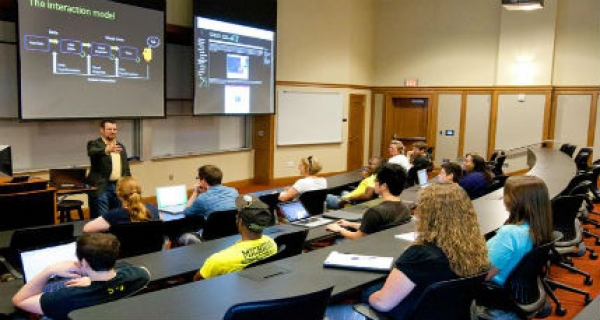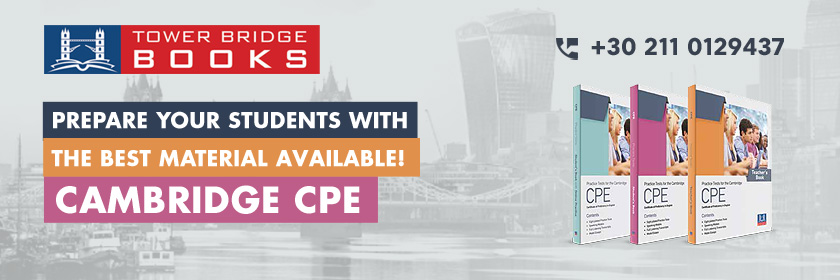These kinds of qualities build our relationships and partnerships in both the virtual and the physical worlds. In many cases, they are some of the most important life skills we have as members of a caring and fruitful society.
Each of our best personal qualities has a practical application in our daily lives which can't be measured by a standardized test. So which ones stand out above others? Which personal qualities matter most? Let's take a closer look at some of them, at least.
7 BEST PERSONAL QUALITIES THAT MATTER
As you explore the following personal qualities, think about their practice. What makes them so valuable to us and to others, and to our students? Most of all, how can our students benefit from a deeper awareness of them?
1. CURIOSITY
When we thirst for knowledge and discovery, we grow as people. The mind is a muscle that needs constant exercise, and being curious leads us to that exercise by way of new learning.
Why can't it be measured? Simply put, it must be encouraged. The classroom experiences we provide as teachers plant the desire for lifelong learning in our students, so how we teach inspire that curiosity as much as what we teach. Learning something new gives us pride and a sense of accomplishment. When rewarded with encouragement along with new knowledge, curiosity develops naturally.
2. COMPASSION
It takes all kinds of people to create a world. Everyone has a story, and some of these stories can be very sad. Henry Wadsworth Longfellow had this to say about compassion:
“If we could read the secret history of our enemies, we should find in each man's life sorrow and suffering enough to disarm all hostility.”
Why can't it be measured? You can no more measure compassion than you can count the stars. Taking its measure, however, is no more than a matter of perception. We either seem compassionate to people or we don't—it depends on who is judging us at the time.
In the end, the most important thing for our children to know about compassion is this: when we find it most difficult to use is when we must seek to use it most.
3. MORALITY
What is fundamentally 'right' and 'wrong' is the essential consideration here. As a society, we will always be conflicted to varying degrees about this as individuals, and our opinions will vary dramatically. That's fine, as long as we can make it a healthy and meaningful discussion.
Why can't it be measured? It is our students' ultimate responsibility to fashion their own moral compass for guiding them through life. This happens with life experience and critical thinking that forms opinions and outlooks. An integral part of our job as parents and teachers is to help children form morals that focus on what is best for a happy, safe, and productive community. Teaching morality isn't about teaching conformity—it's about teaching wisdom and wellness for all.
4. HUMILITY
Humility is more than just being humble and modest. It concerns the recognition and appreciation of the strengths and talents of others. It gives a nod to the creativity and sensibility in everyone around us.
Why can't it be measured? It's difficult to define levels of humility. The truth is even some is better than none at all. Humility shows others we have a desire to keep learning and growing. We know we have done well, but it is our personal aim to do better. Humility inspires us and others to always strive for new heights. It is also a way to honour those who have achieved great things before us.
5. GRATITUDE
Gratitude thinking fulfils our wants on the highest levels. It does this by acknowledging the presence of everyone and everything good in our lives. It even acknowledges the difficulties, and the lessons we learn from them. The more you give thanks, the more you end up having to be thankful for. Take it from Meister Eckhart: If the only prayer you ever say in your life is "Thank You," that would be enough.
Why can't it be measured? Because gratitude should be immeasurable. There should be no end to it in our daily thoughts. We just feel better when we appreciate what we have and receive.
Remember, gratitude isn't paying lip service; it's a matter of the heart. When you see and feel gratitude, you can't describe it. It fills every part of your mind, body, and soul. It's exactly like love—you just know you're feeling it.
6. PERSEVERANCE
Too often when things get rough, the temptation is to just quit. It's a natural human condition to lose faith sometimes. Whether it be in ourselves or in others, it happens—we just want to give up. How often does this happen with our students?
Part of the growth mindset we give our kids can be an attitude striving rather than struggling. That is to say, "advance confidently in the direction of your dreams," as Henry David Thoreau advised.
Why can't it be measured? It's unfair to place a marker on tenacity. What good is it to say "you didn't try hard enough" when we have no way of knowing for sure?
Student life is hard, and so is youth life. We sometimes forget this as adults. For whatever reason, kids will come to school carrying loads that consist of more than just what's in their backpacks. They'll be at 75, 50, 40, even 25 per cent sometimes. Do you know what giving 100 per cent of 25 per cent is? 100 per cent, period.
We must encourage our students to give the best of what is in them. We must first accept, though, that it won't always be our version of 100 per cent.
7. SELF-AWARENESS
Many things fall under the blanket of self-awareness including understanding, intuition, personality, beliefs, and attitude. Having self-awareness is not a new-age flight of fancy, but rather a starting point to every improvement we make in ourselves.
Understanding our own needs, strengths, and weaknesses help us adapt to change. Regardless of the multiple attributions given to the aphorism "Know Thyself," it's good advice for living well.
Why can't it be measured? Achieving self-awareness is a life study and practice. We will always be discovering new things about ourselves with every trial and every victory we have. Making it an ongoing pursuit can be a part of a student's lifelong learning path.









